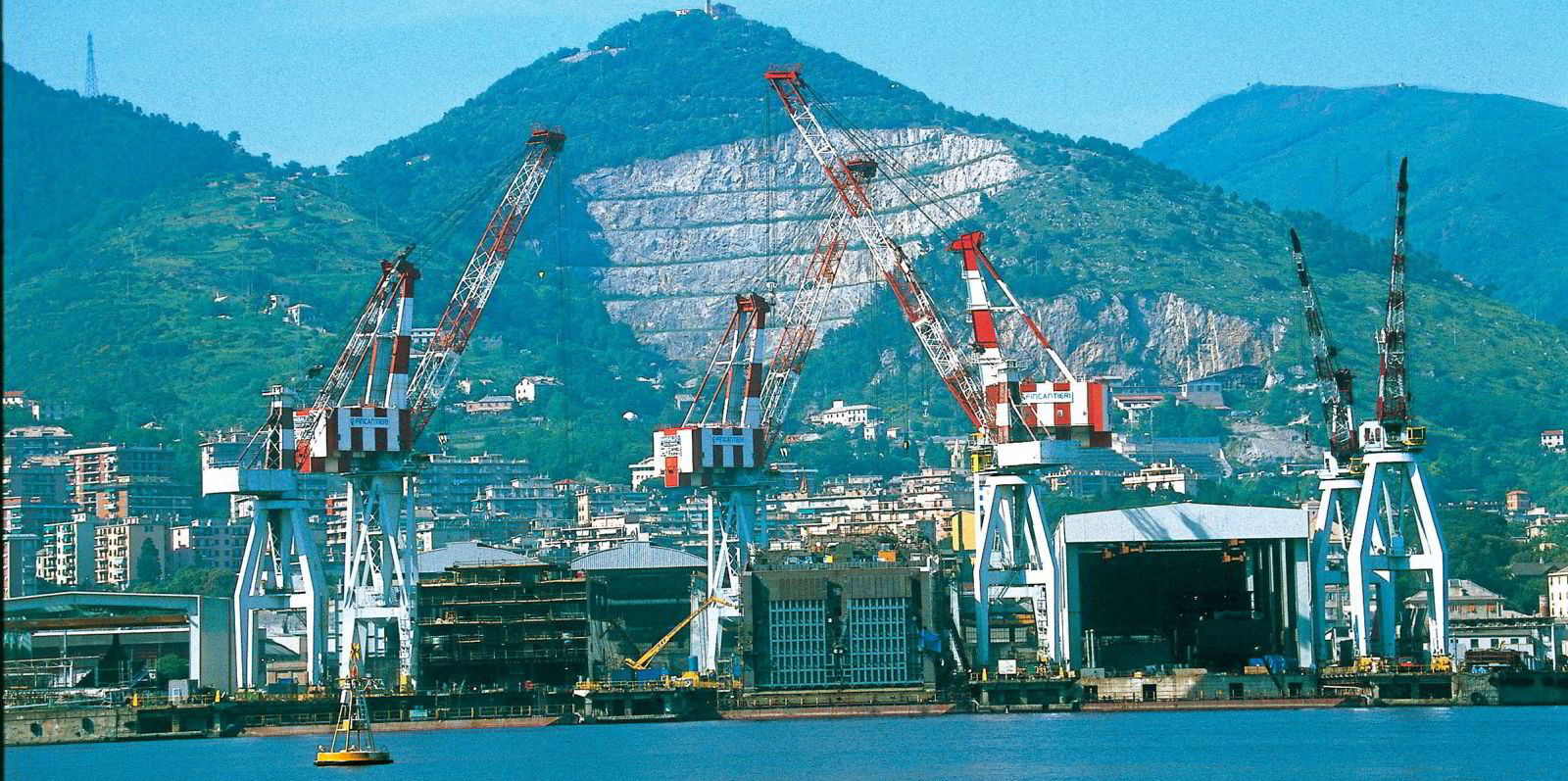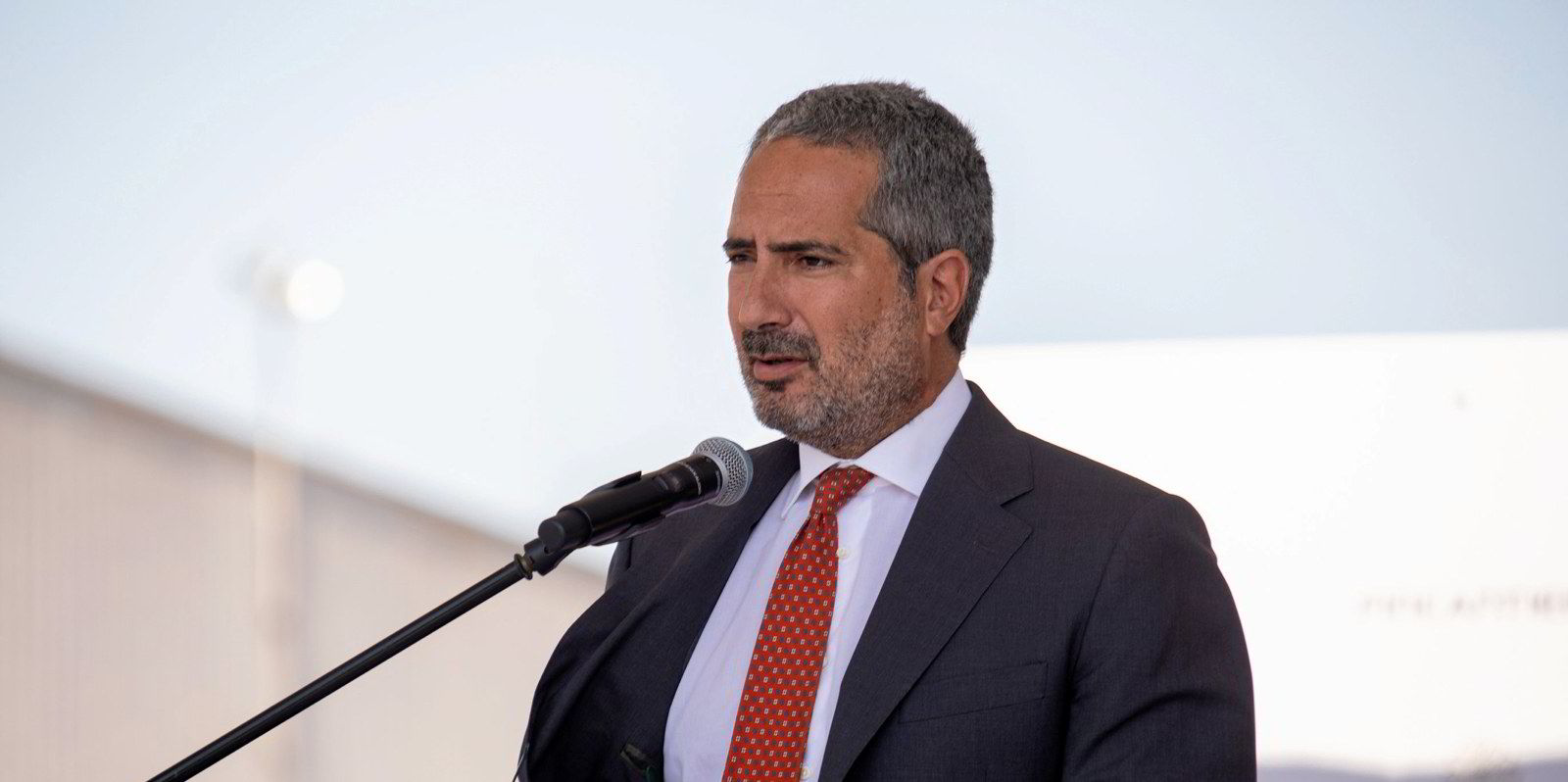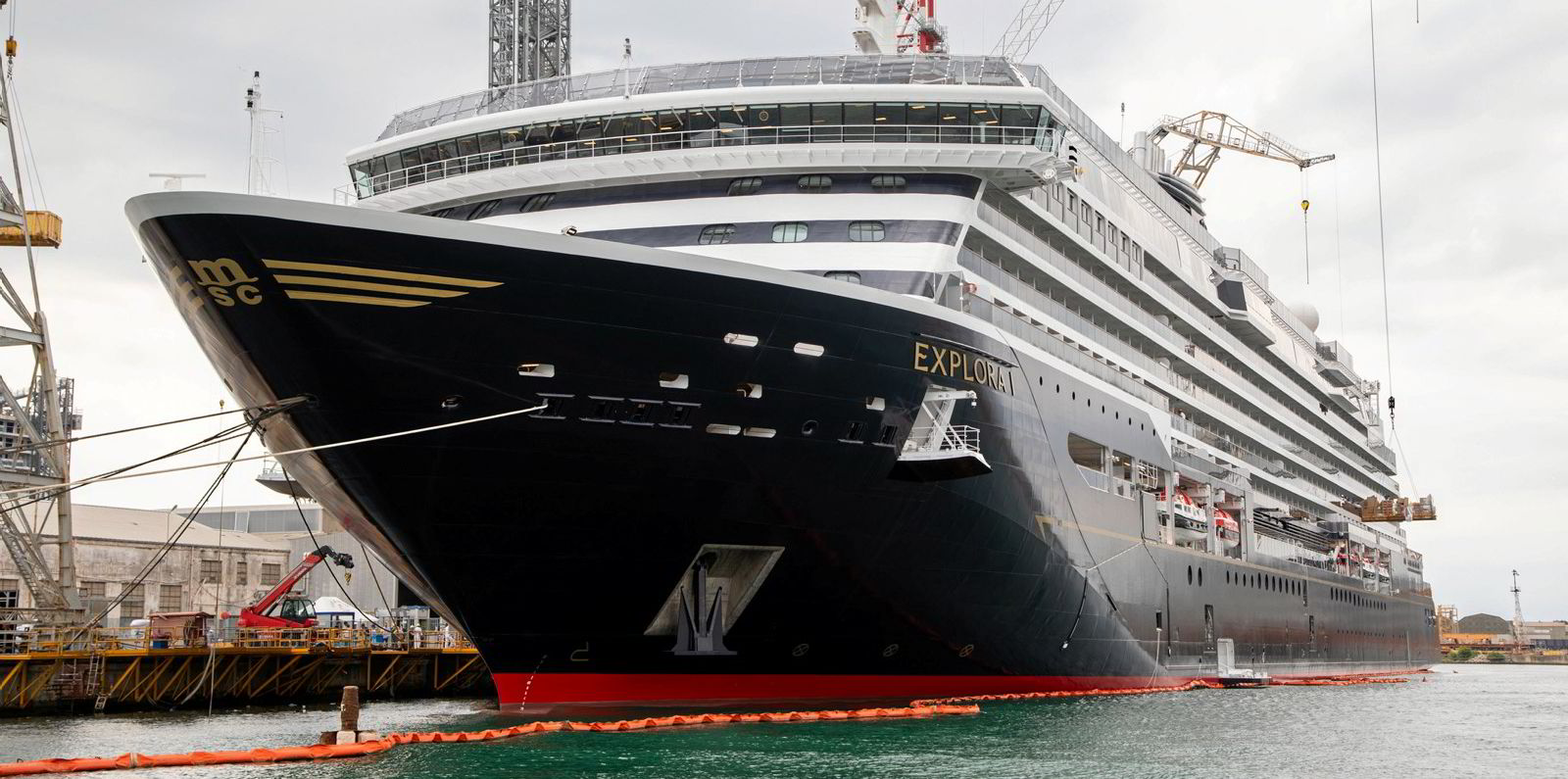Fincantieri chief executive Pierroberto Folgiero is nothing if not optimistic.
He said the cruise market has bounced back, and his company is anticipating a rebound in orders from shipowners in the coming months.
That will come as a relief to shareholders of the Italian shipbuilding conglomerate, which remains the largest cruise shipbuilder with a market share of more than 40%.
The Trieste-headquartered company has built more than 120 cruise ships since 1990 — or over one-third of the global fleet.
The yard, which has deliveries scheduled up to 2028, counted 26 vessels in its orderbook in the first half of the year.
It added to its portfolio in September when MSC Cruises — the cruise division of MSC Group — inked a contract for two vessels for its luxury travel brand Explora Journeys, which completed a total investment of €3.5bn ($3.69bn) in six vessels.
But Folgiero believes demand for Fincantieri’s cruise ships will continue to rise.
The company points to continued passenger growth, which is expected to widen the gap between supply and demand from 2026 onwards.
Passenger numbers are anticipated to increase from 22m last year to about 38m in 2026 and 46m in 2030.

Orders bounty
That is deemed enough to justify a resumption of orders from late 2023, taking into account the lead time for design and construction.
That prognosis remains to be tested as cruise operators Carnival Corp and MSC are squeezed by the higher cost of fuel, inflation and stringent environmental demands.
But Folgiero believes that cruise ship owners will have to order today if they are to maintain market share.
Therefore, a pick-up in orders is likely, starting from the third quarter of 2023 and the first quarter of 2024.
Folgiero has stuck by his prediction given to analysts at the shipbuilder’s Capital Markets day in May that demand will rise due to the segmentation of the cruise ship market.
He pointed to the growth of the luxury market segments, served by small to midsize ships.
That was reflected in an order that was placed in June by Marc-Henry Cruise — owner of Four Seasons Yachts — for the construction of a second luxury cruise vessel worth more than €400m ($421m).
Fincantieri expects a further increase in demand to come from fleet replacement.
Cruise ship owners require vessels with next-generation engines to meet the demands of regulations requiring lower carbon emissions.
Road map
Claudio Cisilino, executive vice president of operations, corporate strategy and innovation at Fincantieri, said the shipbuilder has responded to that with “a clear road map” to delivering a net-zero vessel.
“We will be capable of delivering the first net-zero vessel in [the] cruise industry by 2035,” Cisilino told analysts.
The zero-emission target is expected to be reached in several stages.
Cisilino said existing technology had already resulted in a 32% reduction in emissions from a 2008 benchmark.
The bar is being raised further with orders for the first cruise vessels capable of using alternative fuels such as green methanol.
In February, Norwegian Cruise Line modified newbuilding contracts with Fincantieri so that the last four in a six-ship Prima-class cruise ship order would be able to burn green methanol.
The Prima-class 3,099-berth Norwegian Prima (built 2022) was introduced in August 2022 and it was followed by the 3,215-berth sister ship Norwegian Viva (built 2023) in August of this year.
Meanwhile, Fincantieri’s most recent contract will go even further to reduce emissions. In September, MSC inked an order for a fifth and sixth of its Explora-class vessels for delivery in 2027 and 2028.
These ships will use carbon capture technology and make use of liquid hydrogen with fuel cells to eliminate carbon emissions in port.
“We think we will arrive by 2030 at reaching more than 60% reduction [in emissions], utilising all fuel cells, batteries and dual fuel internal combustion engines,” Cisilino said.
He suggested that a 90% reduction using green fuels such as methanol and ammonia will eventually enable the shipbuilder to reach net zero by 2035.
The ideas are incorporated in Fincantieri’s 2023 to 2027 business plan, which focuses the shipbuilder’s activities on the high-added-value shipbuilding business.





